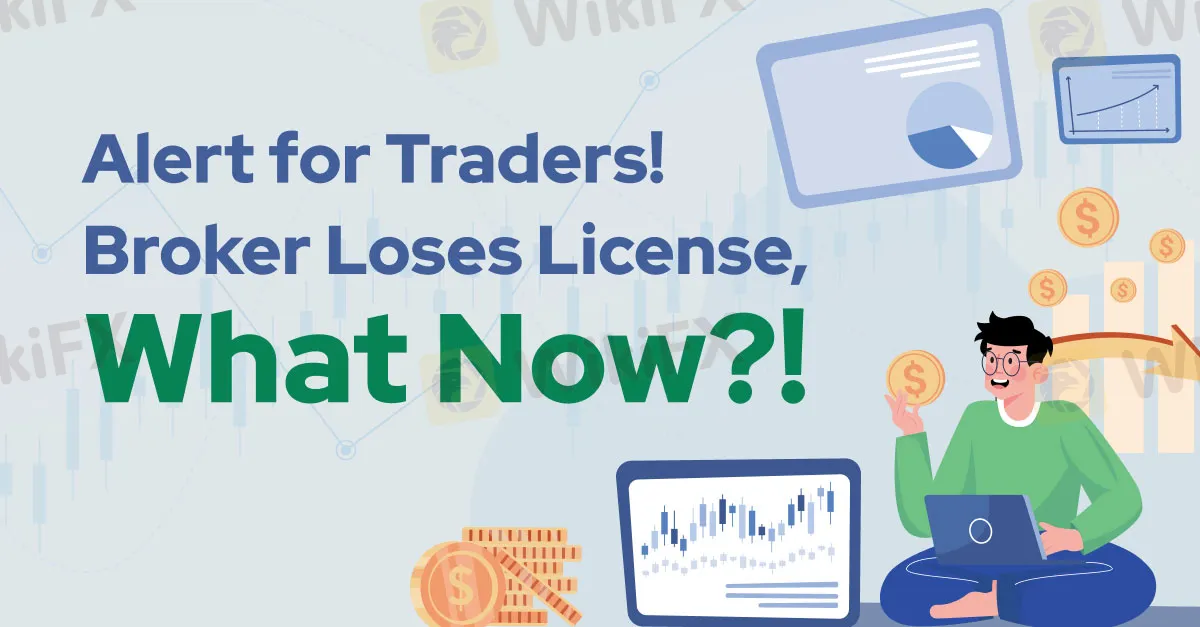简体中文
繁體中文
English
Pусский
日本語
ภาษาไทย
Tiếng Việt
Bahasa Indonesia
Español
हिन्दी
Filippiiniläinen
Français
Deutsch
Português
Türkçe
한국어
العربية
Alert for Traders! Broker Loses License, What Now?!
Abstract:A broker's license is your financial shield, but when it gets revoked, you're left exposed - here's what you need to know to survive.

In the world of financial trading, the significance of a broker's license cannot be overstated. It serves as a stamp of credibility, a testament to the broker's adherence to stringent regulations and ethical standards. However, the unsettling reality is that some brokers face the revocation of their licenses. But what does this signify, and what implications does it hold for traders?
A broker's license is a legal authorization granted by regulatory bodies to operate within the financial markets. It's a mark of assurance for traders that the broker complies with the rules and standards set by the regulatory authority.

When a broker loses their license, it is often due to severe reasons. These reasons could include regulatory violations such as misconduct, which involves engaging in fraudulent activities, market manipulation, or deceptive practices. Non-compliance with regulatory guidelines, like improper record-keeping or inadequate risk management, could also lead to license revocation. Additionally, misusing clients' funds for personal or unauthorized purposes is another serious violation that can result in losing the license. Financial instability is another key reason for license revocation. If a broker fails to maintain the required capital reserves or faces insolvency, it could risk clients' funds and the broker's operations, leading to the withdrawal of their license.
The implications for traders when a broker loses its license are significant. There's a risk of funds being compromised or lost. Traders might face challenges in retrieving their funds held by the broker. Depending on the regulatory jurisdiction, there might be insurance coverage for traders' funds up to a certain limit, but this is not guaranteed.
Moreover, trading operations could be severely affected. Trading accounts might be frozen or become inaccessible, causing disruption in ongoing trades. Traders might need to transfer their accounts to another licensed broker, leading to delays and additional paperwork.

In such a scenario, the role of platforms like WikiFX becomes crucial. WikiFX is a leading regulatory query platform that informs and safeguards traders. Its functions include comprehensive broker verification, providing information about license status, regulatory history, and compliance records. Additionally, WikiFX alerts traders about any reported regulatory actions or alerts related to brokers




Educating and raising awareness among traders is also an essential part of WikiFX's role. It offers educational resources about the importance of choosing regulated brokers and empowers traders with knowledge to recognize and avoid potential scams or unlicensed brokers.
For traders, conducting thorough research and due diligence is vital. Verifying the broker's license and regulatory history through WikiFX, reading reviews from other traders about their experiences, and diversifying investments across multiple licensed brokers can mitigate risks.
In essence, a revoked license signifies a breach of trust and regulatory compliance, prompting traders to re-evaluate their broker choices and take proactive steps to protect their interests. Through education, awareness, and the assistance of WikiFX, traders can navigate the intricate world of financial trading with greater confidence and security.

Disclaimer:
The views in this article only represent the author's personal views, and do not constitute investment advice on this platform. This platform does not guarantee the accuracy, completeness and timeliness of the information in the article, and will not be liable for any loss caused by the use of or reliance on the information in the article.
Read more

AI-Powered Strategies to Improve Profits in Forex Trading
Boost Forex profits with AI: predictive analytics, real-time automation, and smart risk management strategies for sharper trades and fewer losses.

FCA Warns Against 10 Unlicensed or Clone Firms
Unlicensed and clone firms pose risks; FCA urges investors to verify authorization.

CySEC Warns Against 14 Unlicensed Investment Websites
CySEC urges caution as 14 websites lack proper authorization.

Exposed: Deceptive World of Fake Trading Gurus – Don’t Get Fooled!
The internet is inundated with advertisements and promotions from self-proclaimed trading gurus who promise to teach you how to become a successful trader and earn a substantial secondary income. These individuals often claim that their trading techniques can make you rich, even if you have zero experience. However, these assertions are typically false, and many people fall victim to these scams. This article aims to expose these fake trading gurus, explain how they operate, and provide tips on how to avoid being scammed.
WikiFX Broker
Latest News
How Crypto Trading Transforms FX and CFD Brokerage Industry
UK would not hesitate to retaliate against US tariffs - No 10 sources
FCA Warns Against 10 Unlicensed or Clone Firms
CySEC Warns Against 14 Unlicensed Investment Websites
Navigating the Intersection of Forex Markets, AI Technology, and Fintech
Exposed: Deceptive World of Fake Trading Gurus – Don’t Get Fooled!
AI-Powered Strategies to Improve Profits in Forex Trading
The One Fear That’s Costing You More Than Just Profits
Currency Calculator







